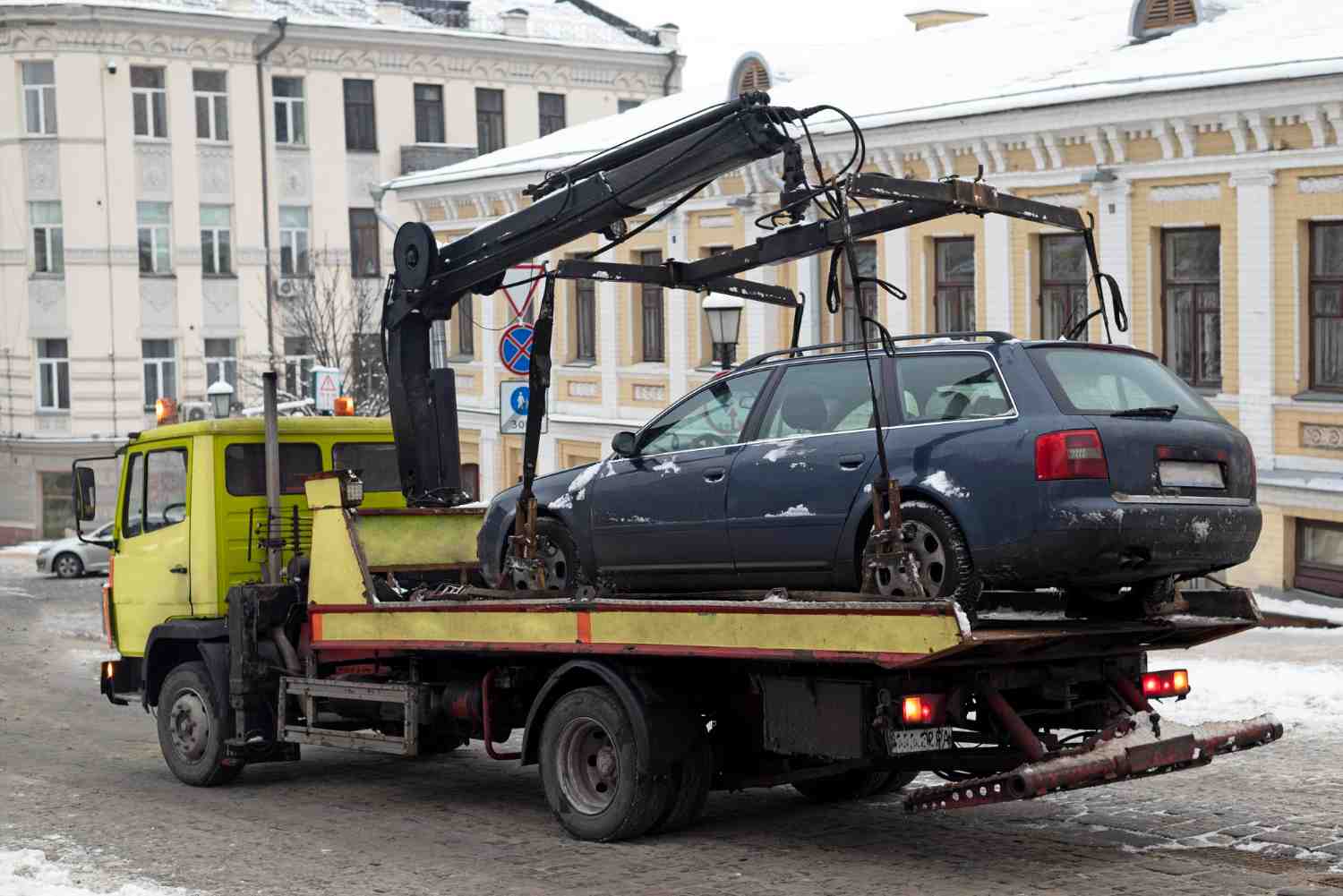Crucial Details About Towing Capacity in the UK
Towing increases the car’s capacity for carrying multiple items, but doing it legally and safely is of dominant significance. Understanding the towing capacity of your vehicle is important, which includes both the weight of a car and the trailer’s load. Information on the towing capacity, as well as applicable legislation, is given in this guide.
The maximum authorised mass (MAM) is 3,500 for towing and if you are towing a trailer, the length cannot exceed 7 metres. In the UK, if your vehicle’s maximum mass exceeds the regulation weight and length, it won’t be allowed; it will be illegal.
What’s the Towing Capacity of My Car Supposed to be?
Towing capacity is crucial for security, legality, and insurance. Owner’s manuals and manufacturer’s websites provide guidance, but knowing the vehicle’s specific capacity is essential. The vehicle’s identification number plate and VIN tag must accurately display the vehicle’s towing capacity figure as an alloy plate.
The VIN plate will have four digits, it is the vehicle’s maximum axle mass (MAM), gross vehicle mass (GVM), and axle weight, which the authorities use to determine if your vehicle is overloaded.

Is it possible to tow a trailer on a Driver’s License in the UK?
Yes, but you must be fully licensed before you drive a trailer. In December 2021, the UK Government updated its law to allow drivers who have passed their driving test on or after 1 January 1997 to tow. Before that, they must have passed a specific test for B+E licences. There are still some crinkles, though, which are explained below:
Passed test on or After Jan 1997: Without upgrading your licence, even if your license photocard does not show the BE category, the maximum towing capacity is 3,500 kg, up from the previous maximum of 750 kg.
Passed test Before Jan 1997: A vehicle and trailer with a combined weight of up to 8,250 kg MAM can usually be driven. Check your driving licence information by viewing it. You may also drive a bus with a more than 750 kg MAH trailer.
Is there specific training required before towing?
Although it’s not legally required, it’s highly recommended that you get ready in advance, especially if you intend to start caravanning or towing a big trailer like a horsebox or car race transporter. Cars react considerably differently when you tow; therefore, you have to learn how to manage the trailer’s balance. The most challenging aspect of towing is reversing, but if your car has trailer assist, it will make it easier.
Numerous companies are available to assist and counsel you on safe car towing techniques. If you have any assistance in towing heavy vehicles you can contact Fast Recovery Service London because they know all the methods of towing and provide you best services.
Can We Tow the Caravan, Car and Horsebox?
When towing a caravan, make sure the vehicle and caravan fit. The most enormous two-axle caravans can weigh over 2,500 kg, while light caravans can weigh less than 400 kg. Verify the unladen vehicle weight (UVW) of the caravan by consulting the information plate or owner’s manual. Give yourself some leeway when matching the car and caravan, and get a portable scale to weigh the vehicles. A vehicle with a 2,000 kg or greater towing capacity is advised.
When towing a car, it is important to carefully calculate the weight of the car, the trailer, and the vehicle itself when towing an automobile. Selecting a car that can pull 2,000 kg is advised for a 500 kg automobile in a covered trailer.
When towing the Horsebox, Horseboxes can be heavy, though their dimensions and weight might vary. For a more comfortable ride, it is advised to utilise a vehicle like the Mazda CX-60 that can tow a minimum of 2,000 kg of miniature horsebox.

Important Factors to Remember When Towing
Overlooking minor details can lead to rough rides, discomfort, load damage, accidents, injuries, and potential damage to the vehicle and other drivers. That is why it is important to check every step and component thoroughly before moving. Here are a few tips:
- Towing Equipment: Use appropriate towing equipment such as safety chains, tow bars and hitches. Match equipment to the weight of the load.
- Secure Connections: Double-check all connections. Ensure the hitch is securely attached, safety chains are appropriately crossed and connected, and the trailer brake system is functional.
- Weight Distribution: Distribute the load evenly to prevent swaying. Properly balance the weight to avoid overloading the front or rear of the towing vehicle.
- Trailer Lights: Confirm that all lights on the trailer are working. The maximum trailer length is 7m
- Speed and Braking Distances: Drive at a moderate maximum of 60mph and increase braking distances. Towing adds weight and can affect your ability to stop quickly.
- Check Trailer Brakes: If your trailer has brakes, ensure they are in good working order. Adjust them according to the manufacturer’s recommendations.
- Regular Maintenance: Maintain your towing vehicle and trailer regularly. Check tyre pressure fluid levels and ensure all components are in good condition.
- Know the Laws: Towing regulations and laws in your area, including speed limits, are crucial for safety. Unsafe vehicle combinations with trailers can result in fines up to £2,500 and 3 penalty points on license.
Closure
Comprehending and adhering to UK towing regulations is vital for safely increasing a car’s capacity. With a maximum authorised mass (MAM) of 3,500 or less and restrictions on trailer length, whether your license was obtained before or after January 1997, towing regulations vary, emphasising the importance of understanding the specifics for each category. Pre-towing training, though not legally required, is highly recommended.
Partnering with experienced companies like Fast Recovery Service London ensures expert guidance on safe towing practices. Careful attention to factors such as weight distribution and secure connections is essential for accident prevention and a smooth towing experience on UK roads.

